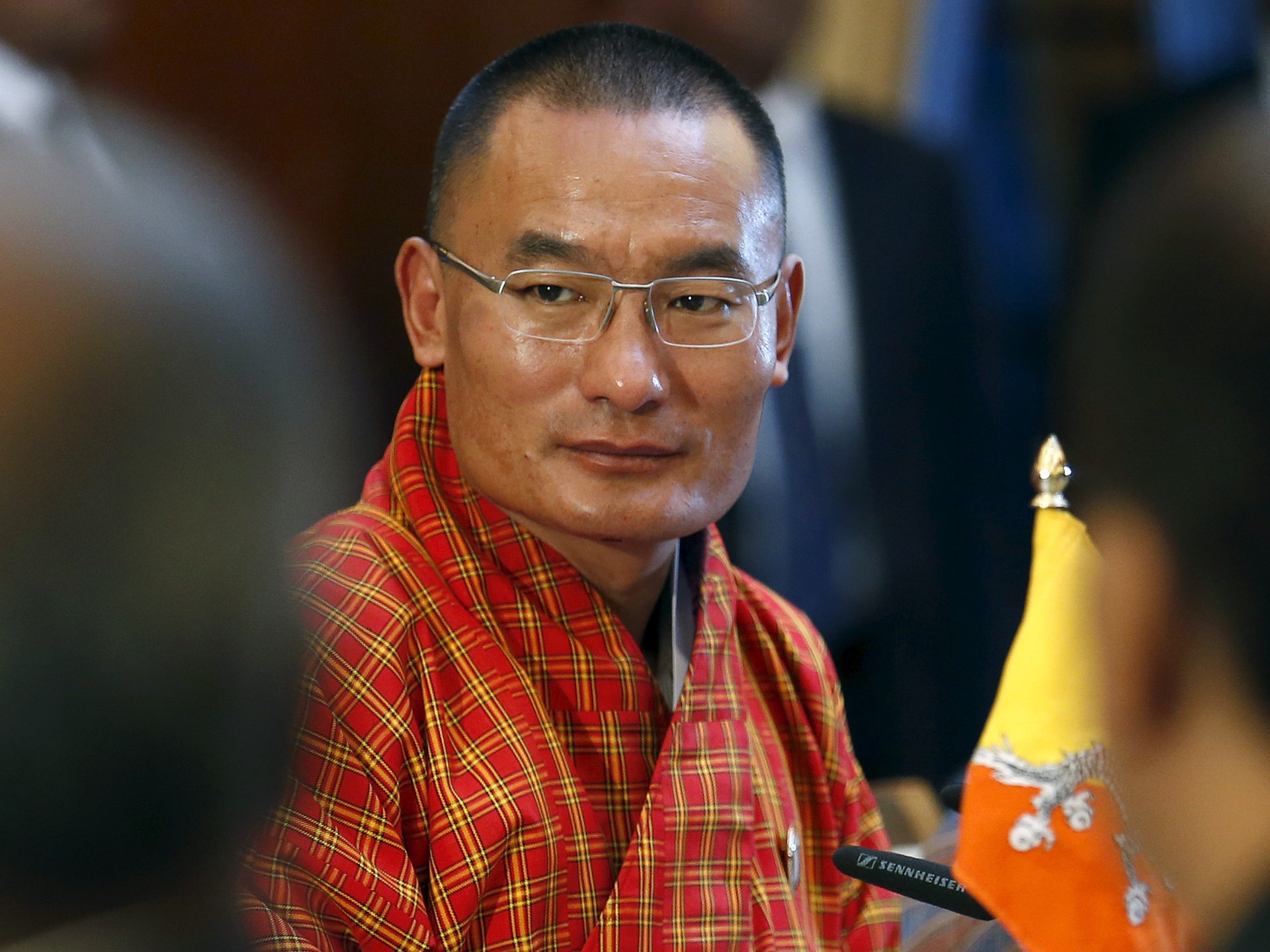Election commission says People’s Democratic Party, led by Tobgay, won 30 seats in the 47-member parliament.
Bhutan’s liberal People’s Democratic Party (PDP) is set to form a new government after winning in parliamentary elections, according to results from the country’s electoral body.
PDP leader Tshering Tobgay, 58, who was prime minister from 2013 to 2018, is set to become the new premier for a second five-year term.
The Election Commission of Bhutan (ECB) released its provisional results on Wednesday, a day after the tiny Himalayan kingdom held elections, which showed the PDP winning its fourth free vote since democratic elections began 15 years ago.
The PDP won 30 seats in the 47-member parliament, or National Assembly, with the rest of the seats going to the Bhutan Tendrel Party (BTP), according to the early tally by the ECB.
The PDP was formed in 2007 by Tobgay.
Tobgay campaigned on the promise of boosting the economy and reducing unemployment rates, despite the country’s constitutionally enshrined philosophy of measuring success in terms of “Gross National Happiness” instead of gross domestic product (GDP).
Voter turnout was at 65.6 percent, with 326,775 people casting their ballot from the 498,135 eligible registered voters, according to the ECB. They chose members of parliament from a pool of 94 candidates presented by the BTP and the PDP.
A first round of voting in November eliminated three other parties, including the governing centre-left Druk Nyamrup Tshogpa party.
The picturesque nation nestled between China and India is still struggling to revive its aid and tourism dependent economy following the COVID-19 pandemic.
India is Bhutan’s biggest donor, and while the Himalayan nation has no ties with China, it is in talks with Beijing to resolve border disputes. The negotiations are closely watched by India, which has its own border dispute with China.
“Heartiest congratulations to my friend @tsheringtobgay and the People’s Democratic Party for winning the parliamentary elections in Bhutan,” Indian Prime Minister Narendra Modi said in a post on X. “Look forward to working together again to further strengthen our unique ties of friendship and cooperation.”
Heartiest congratulations to my friend @tsheringtobgay and the People’s Democratic Party for winning the parliamentary elections in Bhutan. Look forward to working together again to further strengthen our unique ties of friendship and cooperation.
— Narendra Modi (@narendramodi) January 9, 2024
In 2008, the country underwent a transformation from a traditional monarchy to a parliamentary form of government.
Check out our Latest News and Follow us at Facebook
Original Source

